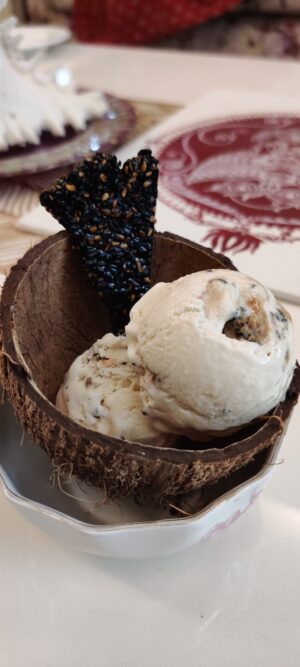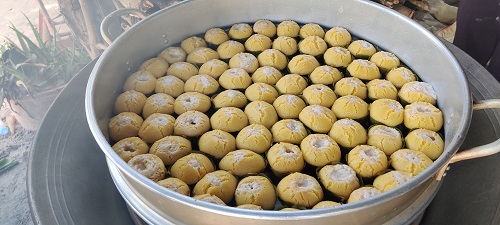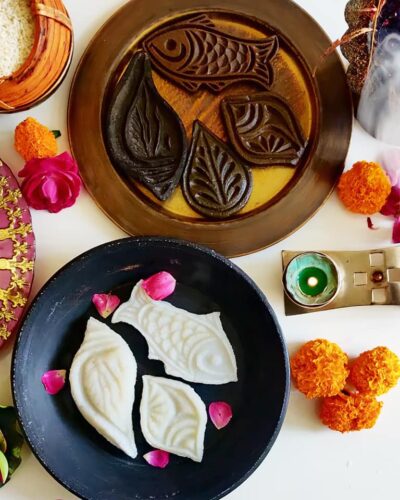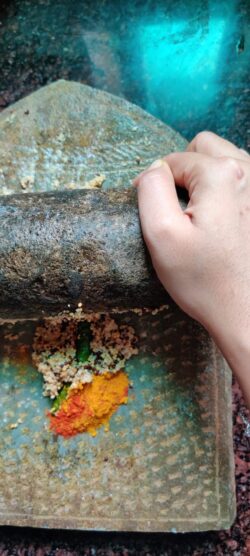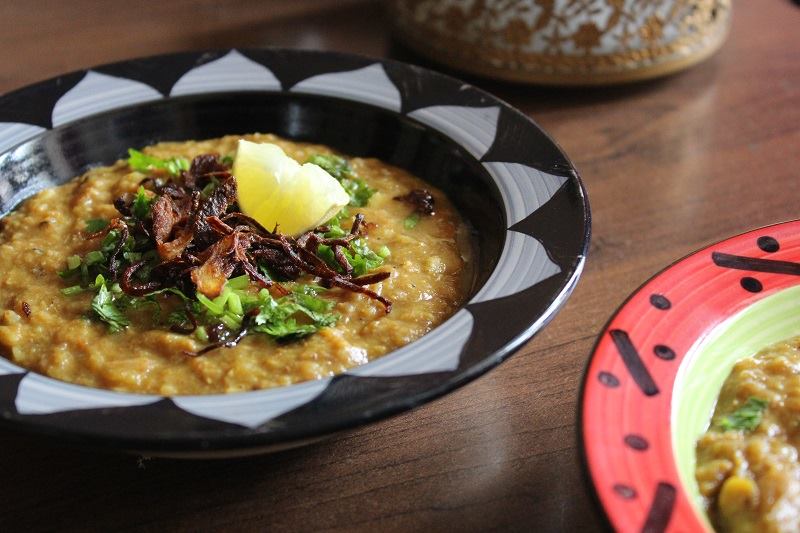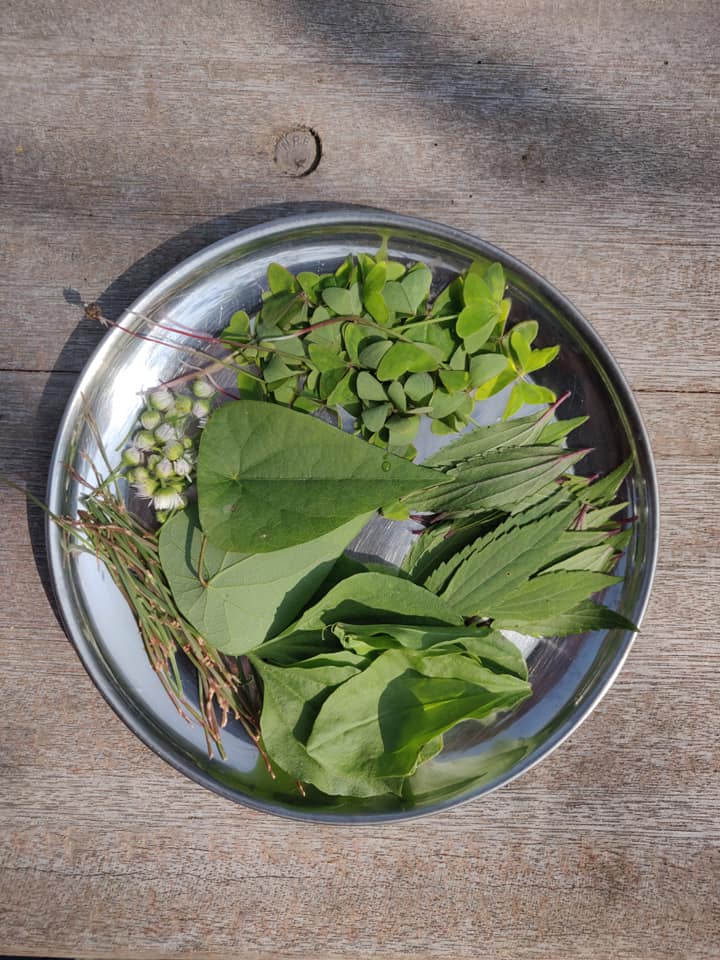
Mussoorie; October 28, 2019, Monday
It is unbelievable how much the temperature and air quality can change at the end of a six hour drive. Mussoorie looked, smelled and felt like another part of the planet, far removed from the almost sepia-tinted, dusty Delhi air. The owner of the cottage Desna Sharma had warned me that the temperatures were hovering between a range of 16°-6° Celsius. Though we had packed warm clothes, the cold last night made us feel that it wasn’t adequate. Sitting in Delhi, we probably had found it impossible to imagine 6°C combined with the moisture of the waterfall nearby!
Yes, the cottage has a stream running next to it that cascaded into a waterfall. The ceiling to floor glass windows of the first floor bedroom overlooks an impossibly beautiful scenery. Green mountains, step fields and a waterfall next to a quaint, traditional watermill. An old Garhwali lady runs it from morning till evening. The sounds of the grinding stone gets lost in the soothing but powerful sound of running water.
Om has been down with fever since we reached last afternoon and has spent greater part of the day (and evening) resting. Not before striking up a friendly conversation with our hosts, Desna and her father. He seemed better this morning, so we walked around the house a bit after breakfast, to return with impossibly squishy shoes, thanks to the mist and dew. Looking around, I noticed that I knew quite a bit of the ‘garden weeds’ as they are quite similar to what I am used to seeing in Digboi or Sibsagar! Quite a few of them are edible and medicinal. So, we decided to go foraging later in the morning and make the foraged bounty part of our lunch and evening snacks. Rather, I decided to go foraging and Om decided to take photographs and pray that I knew my food from poison! In between the praying, he extended an invite for evening chai and pakodas to our hosts! The fact that the cottage had a kitchenette, no food to offer and we had packed a mini pantry turned to our advantage.
Around ten in the morning, when the sun was just about warming, we went plucking in the overgrown garden and streamside. I am surprised that I remember quite a few plants from what I was taught by Thamma! Some information I had picked through botany classes in college and some through reading. It was fun doing it after years.
It is amazing how most of the plants that are termed as weeds in our manicured landscapes, are actually part of diets of local communities and are used in indigenous and Ayurvedic medicines. This unkempt garden was no difference in terms of the plants that had overgrown it! Almost every nook and cranny was adorned with beautiful white chamomile. Om looked surprised that these buds actually go into tea, and once convinced, happily plucked a handful.
The garden was a treasure trove. There was Sessile joyweed (maati kanduri in Assamese), Leucas cephalote (dronpushpi in Hindi/doron in Assamese), pouzolzia (borali bokua in Assamese), acmella oleracea or toothache plant, snakevine (tubiki lota in Assamese), dryopteris, shatmula, bringaraj, chota dhatura, red and green amaranthus, lamb quarters, plantain leaf (not the banana but a weed) amongst others. There also this slender green plant with light pink flowers that had a pleasant sour taste which the Garhwalis call ‘khatmeeth’ and make chutney out of. There was also a single plant of the Indian strawberry, with two gorgeous red fruits that are absolutely tasteless! I really wish I had a botanist accompanying me, especially someone like Loganathan from Pondicherry. I am not a qualified botanist, imagine what better trained eyes could pick!
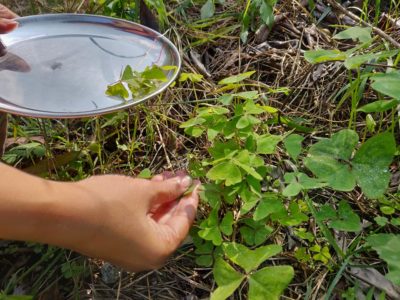
Armed with my little knowledge, I picked as many as I could safely identify; leaving the ones which had few leaves or were not very many in number.
The sides of the stream had a lot of wood sorrels (tengesi tenga in Assamese), clover, and watercress (gangamula in Assamese). I picked handfuls of all three to go into the daal for lunch. The herbs lent a light tangy touch to the otherwise plain daal cooked with a few vegetables.
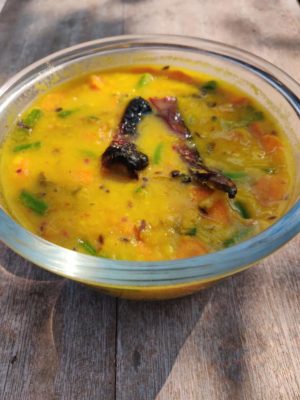
The rest were dipped one leaf at a time into an airy batter of rice flour and salt, and fried into delicate, crisp pakodas with our evening tea.
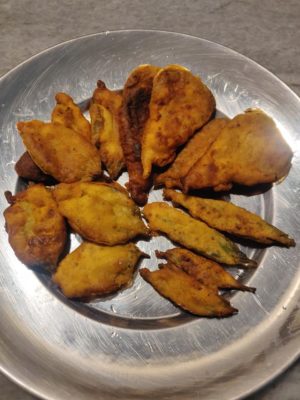
Well, much food, chamomile tea and chitchat has happened since then. Dinner is almost ready. The water in the stream has flown persistent and musical in it’s endeavour. And Om seemed to have well survived his wife’s foraging adventure. I guess his prayers did pay off!


